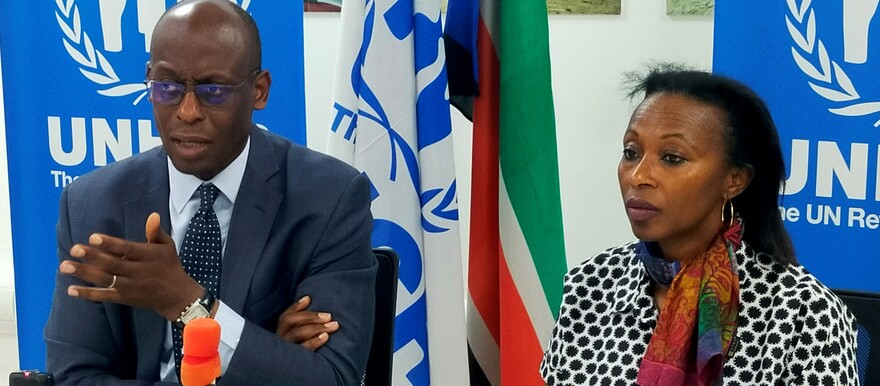The United Nations High Commissioner for Refugees (UNHCR) Assistant High Commissioner for Operation, Raouf Mazou, said on Wednesday that South Sudan has hit a dire milestone of 100,000 new arrivals of returnees and refugees fleeing the violence in Sudan.
He explained that these high numbers are a serious concern, making an already difficult humanitarian crisis worse.
Addressing a press conference in Juba following a visit to Renk in Upper Nile State to assess the situation of new arrivals, Raouf Mazou revealed that since the start of the conflict in Sudan in April, thousands of people have fled across the border daily to South Sudan, majority of whom are South Sudanese returnees who are now returning to the country they had once been forced to flee.
He said the returnees are arriving alongside refugees from Sudan and various other nationalities who South Sudan has generously welcomed.
“The South Sudan situation is unique; the vast majority of people arriving are South Sudanese who are coming back to their country of origin, compelled by circumstances, returning to communities that are still impacted by insecurity, with very limited services and infrastructures. Many families told us they are eager to reach home communities while also worried about what they will find when they get there,” Mazou said.
He noted that the majority of those fleeing the violence are arriving after long, difficult journeys in remote towns like Renk in Upper Nile State, where prices of basic items have skyrocketed as many goods remain scarce in the northern part of the country, further complicating the situation for the tens of thousands still stuck in those areas.
Mazou said UNHCR, International Organization for Migration (IOM), the government and other humanitarian partners are monitoring 27 border points across the country and have set up transit centres in key locations to provide vulnerable new arrivals with immediate lifesaving support.
He said as fighting in Sudan continues, arrivals are expected to increase, and there is an urgent need to scale up the humanitarian response.
“UNHCR and partners are appealing for 96 million US dollars in South Sudan to support lifesaving activities for those arriving from Sudan and ensure that the country`s humanitarian crisis does not deteriorate further as the impact of the crisis in Sudan spreads to its neighbours,” he noted.




